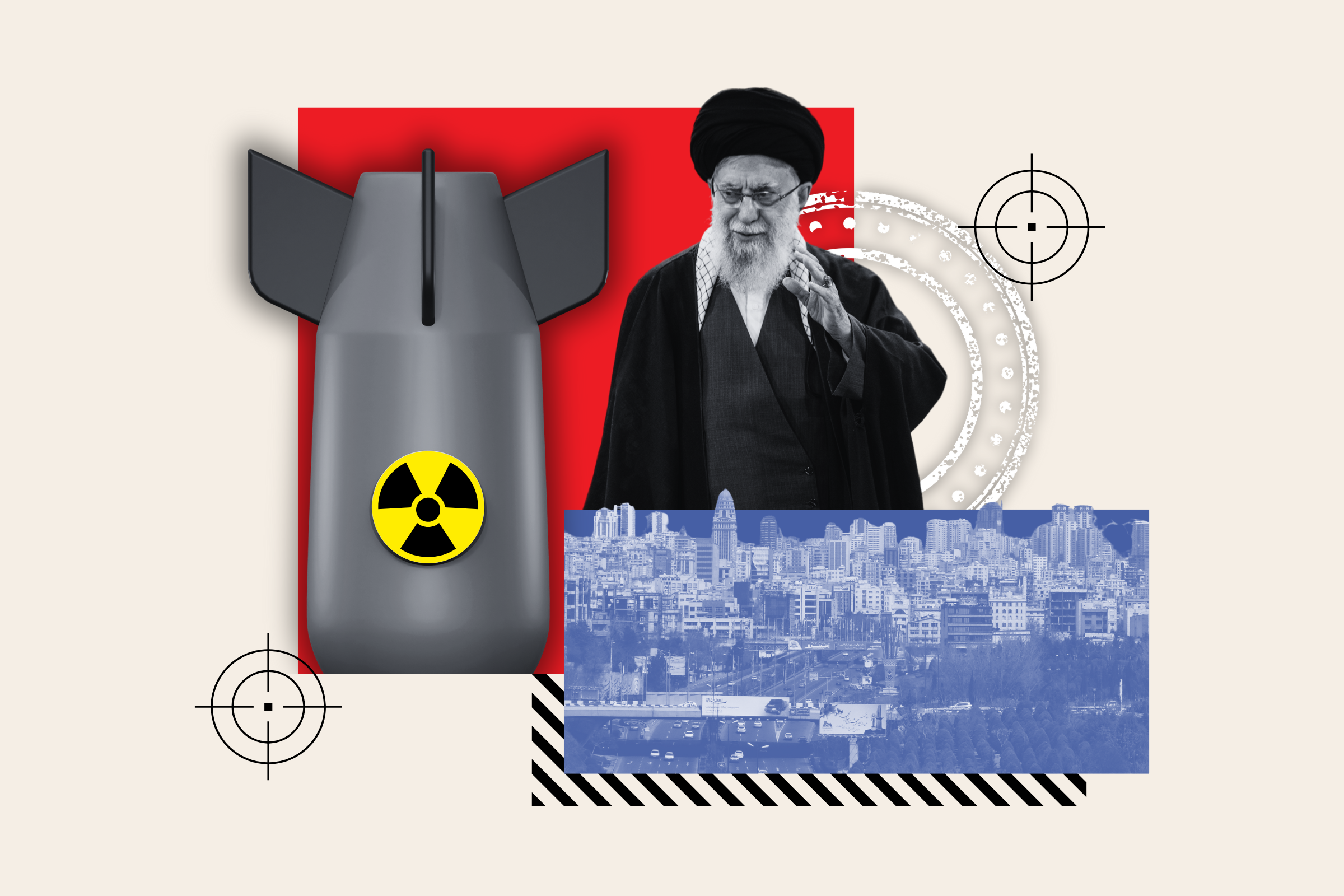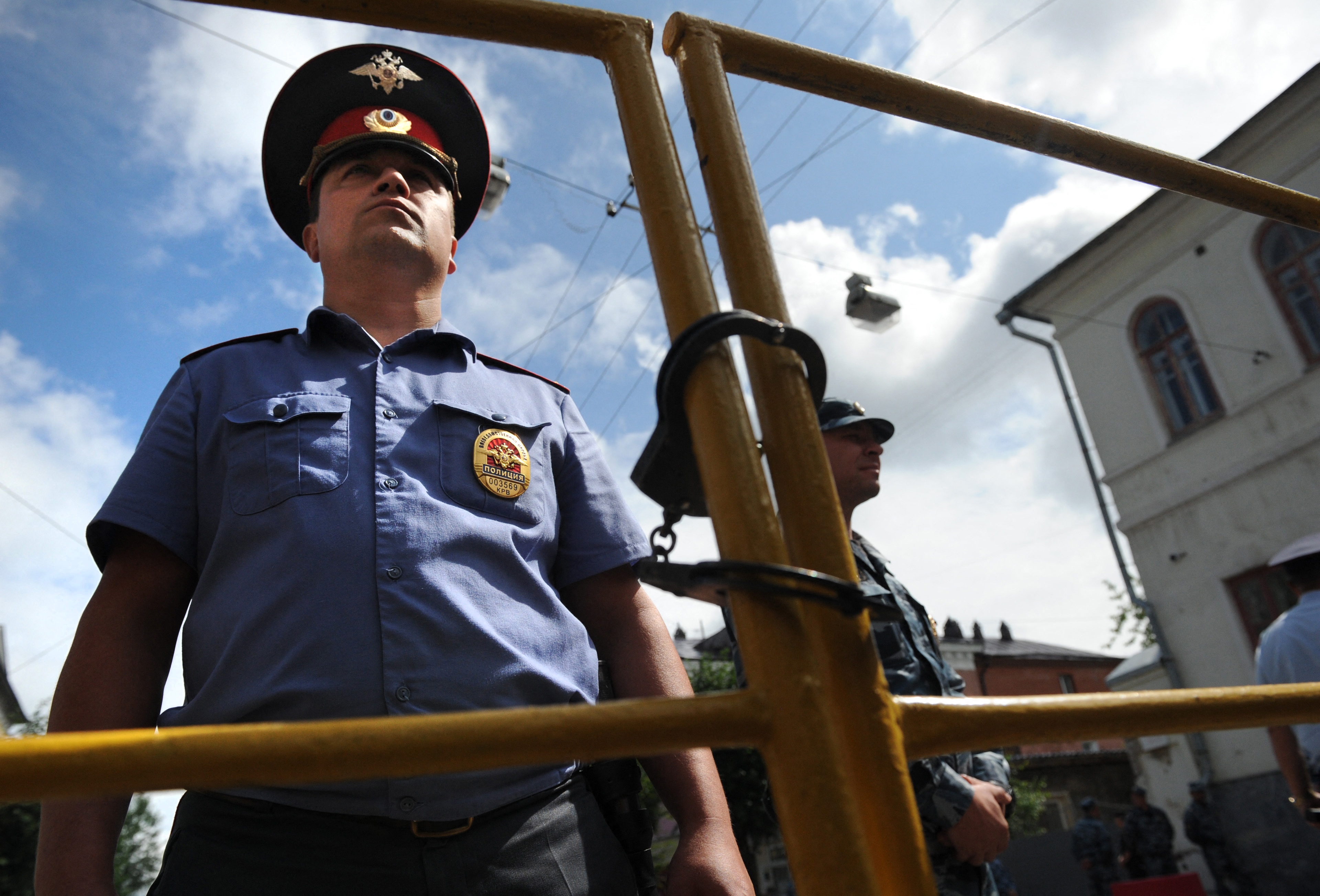Azerbaijan's military conquest in late September of the tiny, self-proclaimed Armenian separatist republic of Nagorno Karabakh has provoked displays of grief and ragein Armenia's capital of Yerevan. Poignant images of thousands of ethnic Armenians fleeing the mountainous enclave with possessions tied to their car roofs have captured global sympathy.
Yet in realpolitik terms, the dissolution of the Karabakh separatist government is a win for Armenian Prime Minister Nikol Pashinyan. In recent years, the three-decade-old breakaway government, representing an estimated 120,000 ethnic Armenians, had become a political burden and a barrier to regional peace and integration.
In this sense, it has been a blessing for the besieged Armenian leader that Russian President Vladimir Putin's attention has been elsewhere. Ever since the 1991 fall of the Soviet Union, Russia has ostensibly been Armenia's close ally and the separatists' protector, sending peacekeepers to the enclave in 2020 and guaranteeing transit on the single road connecting it to Armenia. But Russia has also used the separatist enclave to pressure both Armenia and Azerbaijan. This is a tried-and-true Russian technique used with breakaway territories throughout the former Soviet Union, including in Georgia, Ukraine, and Moldova. In the Azerbaijan conflict, whenever Yerevan or Baku strayed too far from the Russian policy line, Moscow would threaten to step up or cut military support for the region. This dynamic made both countries dependent on Moscow.

The Karabakh separatists also exerted pressure on Pashinyan, who never managed to control the region, despite public perceptions. Karabakh officials maintained their own ties to Russia while pushing Pashinyan to take more aggressive policies towards Azerbaijan. The most influential separatist politician, Ruben Vardanyan, is a Russian-made billionaire oligarch and former advisor to Putin. He helped launder $4.5 billion for Russian elite through the Troika Dialog, a bank he founded that later became part of Russia's Sberbank. Last year, 46 members of the U.S. Congress proposed sanctions on Vardanyan and other "kleptocrats and senior political figures of the Russian Federation" in the Putin Accountability Act.
Karabakh officials, such as Arayik Harutunyan, often reached out to Russia for military help before seeking support from Armenia, and until this month, Putin was happy to oblige. The Artsakh Defense Forces, the military wing of the separatist government, was supplied with sophisticated Russian weaponry, including advanced Russian Kornet guided missiles.
Pashinyan understood the unsustainability and danger of such a regional dynamic. Earlier this year, he recognized Karabakh as part of Azerbaijan. And during the Azerbaijani offensive, he did everything he could to keep Armenia out of the conflict, saying that keeping the nation "conflict free" is crucial to maintaining its independence.
With the end of the three-decades-old Karabakh dispute, Armenia should now have no more conflicts with its four neighbors. Peace will also allow Yerevan to cooperate with Azerbaijan and Turkey, which could accomplish Pashinyan's goal to reorient Armenia to the west.
Since it became clear Karabakh would fall, both Armenian and Azerbaijani experts have begun touting the potential benefits of peace, including giving Yerevan the chance to integrate economically with neighboring Azerbaijan and Turkey. This would put Armenia in a position to profit on the potentially lucrative Middle Corridor, an economic trade route from China to Europe, bypassing both Russia and Iran. It would also allow Armenian products to make their way to the European market and Yerevan would be able to economically pivot away economically from Russia and Iran.
Regional integration, however, will only be possible if Azerbaijan truly commits to a peaceful integration of ethnic Armenians in Karabakh. Azerbaijani President Ilham Aliyev and other top officials have publicly promised to protect their cultural rights but many Karabakh Armenians—justifiably—do not trust Azerbaijani promises and have fled en masse to Armenia. According to Armenian officials, around 80 percent of the enclave's Armenians have taken part in the exodus. Following three decades of ethnic conflict that brewed deep hatred, it is important that the Azerbaijani government enact reconciliation measures that will win the trust of whatever Armenian population remains.
To be sure, reconciliation has powerful foes. The biggest are Russia and Iran, both of which have exploited the destabilization of Karabakh to keep Azerbaijan and Armenia in check. The Russian propaganda machine has run a fierce campaign against Pashinyan over the last two weeks, pushing a narrative that he lost Karabakh by turning his back on Russia. And former Karabakh leader Harutunyan recently accused the Russian media of conducting hybrid warfare against Armenia.
Russian politicians have also not stayed silent. Recently, former Russian President Dmitry Medvedev threatened Pashinyan saying that "we will see what kind of fate awaits him" for blaming Russia for his loss and "playing games with NATO" on Medvedev official Telegram channel. On Sept. 25, the Russian Ministry of Foreign Affairs accused the Armenian government of severing ties between the two countries and becoming a "hostage to Western geopolitical games." Three days later, Russian Foreign Minister Sergei Lavrov said that despite the desire of Armenian politicians to reorient to the West, "Russian geopolitical interests in the Caucasus cannot be ignored."
These statements may translate into action. Reports from both Azerbaijani and Armenian media mention the potential of a Kremlin-backed coup against Armenia. The Armenian government is currently investigating the presence of Wagner forces inside the country that are allegedly plotting a change of regime. The speaker of the Russian Duma, Evgeniy Fedorov, recently said Russia would "reestablish control over Armenia" and appoint a "governor or something." The Russian Ministry of Foreign Affairs denied the statement.
Should Pashinyan survive the protesters and a Kremlin plot. Armenia could see a bright future ahead, aligned with the West. But should he fall, Armenia's independence and the prospect of regional peace will fall with him.
Joseph Epstein is a legislative fellow for the Endowment of Middle East Truth (EMET).
The views expressed in this article are the writer's own.
Uncommon Knowledge
Newsweek is committed to challenging conventional wisdom and finding connections in the search for common ground.
Newsweek is committed to challenging conventional wisdom and finding connections in the search for common ground.
About the writer
To read how Newsweek uses AI as a newsroom tool, Click here.





